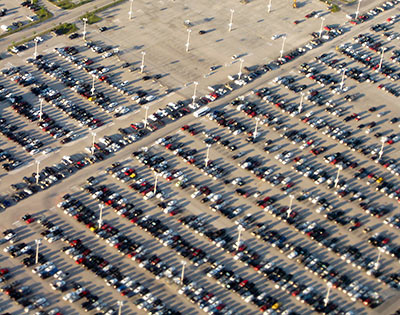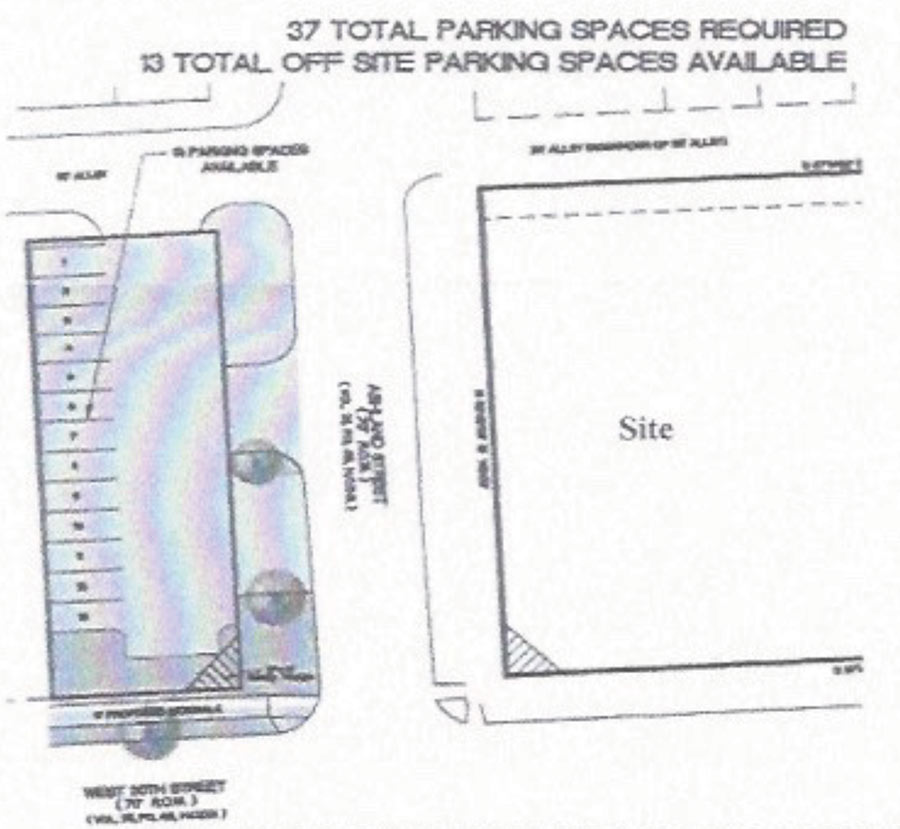
The recommendations of a planning commission subcommittee aren’t going to get any Houstonians in the growing anti-free-parking crowd too excited — they only propose a series of incremental adjustments to the city’s existing off-street parking regulations. Among the newly issued report’s more notable suggestions: requiring shared-driveway townhome developments to provide a single guest parking space for every 6 units, or at least preserve on-street spaces; allowing takeout- or drive-thru-only restaurants and dessert shops to provide fewer off-street spaces and requiring all other restaurants, bars, and clubs to provide more; a minimum 5-year length for any parking lease agreements used to meet minimums, as well as language that automatically revokes an establishment’s certificate of occupancy when they expire; extending the maximum distance to offsite parking to 800 ft. and giving the planning director the authority to stretch it further in some instances; more notification — including signs — when parking variances are applied for; adjusting the rules for how locations can be “grandfathered” under previous parking requirements; and allowing the creation of new “parking districts” in free-for-all areas such as Washington Ave.
***
Plus: allowing a 25-percent-off parking-space credit for landmarked buildings or contributing structures in designated historic districts; and requiring a small amount of bicycle parking for inside-the-Loop commercial developments larger than 5,000 sq. ft.
A presentation of the proposed changes is scheduled for next Monday at the West End Multi-Service Center — or you can dig through them yourself here (PDF).
- Off-Street Parking Ordinance [P&D]
- Previously on Swamplot: Your Chance To Fiddle with Houston’s Off-Street Parking Requirements
Photo of IAH parking lot: Addison Berry [license]





How is “dessert shop” a business category?
wow, all that.
much simpler.
charge a higher price for on-street parking in places and at times where demand is greater than supply.
I think another business that should provide parking is car dealerships. Car dealers build large multi-car dealerships but they don’t set aside any space for the 18-wheel car haulers any space to load and unload. So the car hauler has to park on the feeder to load and unload. This is dangerous and impedes traffic. The dealership should set aside a small tract for the car hauler to get off the feeder.
I am curious about the single-family residential requirement (which is in the existing ordinance and is not being changed). Absent some clarification in the ordinance that I am missing or an approved variance, does this mean that every single-family home with a garage apartment under 900 square feet must have at least 3 off-street parking places?
Trey, Wile I respect your opinion, there is no sense in you doing this whole logical and correct thinking type of thing. Walmart! Tear-Down! Suburb! Turret!
The rail implementation keeps sounding better and better
So they increased the parking requirements for bars by 75%? I hope they follow this announcement by an anti drinking and driving campaign.
Something simple like only allowing street parking on one side would do wonders for several residential areas, you could even switch sides every month, year, decade or century.
kudos for more bike parking. wish it extended to all commerical business, not just big box outlets.
From crosscreek:
Something simple like only allowing street parking on one side would do wonders for several residential areas, you could even switch sides every month, year, decade or century.
In Montrose it is becoming impossible to navigate the streets because of parked cars on both sides.
What makes it worse, is people too lazy to park in their own driveways.
I hate people.
To poster # 6, yeah that rail thingie is working so well, run by that completely honest and transparent organization Metreaux. Take a look at the REAL numbers on ridership and costs/rider and then try to convince someone with cognitive reasoning abilities that rail makes sense in Houston.
So what’s the REAL cost of the extra parking spaces on those business? It costs money to build parking spaces, maintain them, & pay taxes on the land. Parking lots aren’t income generating features.
Matthew: That’s a losing argument. No one cares about the effect wrt costs on businesses.
.
I say get rid of all these $$$ commissions who write laws to micromanage how many/big our parking spots are. This isn’t rocket science. While it’s trendy to have the government run every aspect of our lives right now, the market place and individuals making their own decisions on where to shop or what to buy can drive the supply of spots to increase/decrease when needed.
.
Do you think the new Montrose HEB would have built their new store with zero spots without a law to govern how many they are required to put in? No. They’d put in how many they feel they need to meet the supply of customers.
.
And shame on this committee for suggesting / threading to revoke the certification of occupancy if someone falls afoul of a new parking law. You’re threatening people’s businesses, jobs, and livelihood.
Cody, you comment about government intrusion in Houston, Texas without any sense of irony. You are talking about Houston, right?
@ 8 Where my sisters have lived (Chicago area), it was one side on even days, the other on odd days–and the authorities were out there enforcing it every day! This was strictly a way to make people park in their garages and driveways, since it was a community of single-family homes in a strictly residential area so lack of on-street parking was never a problem (and the money it generated didn’t hurt either, I suppose). It worked, though!